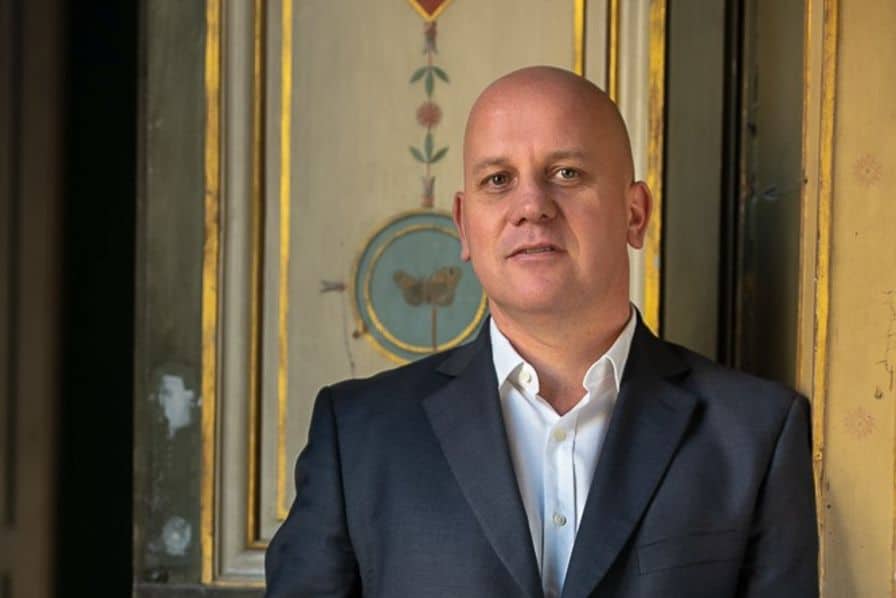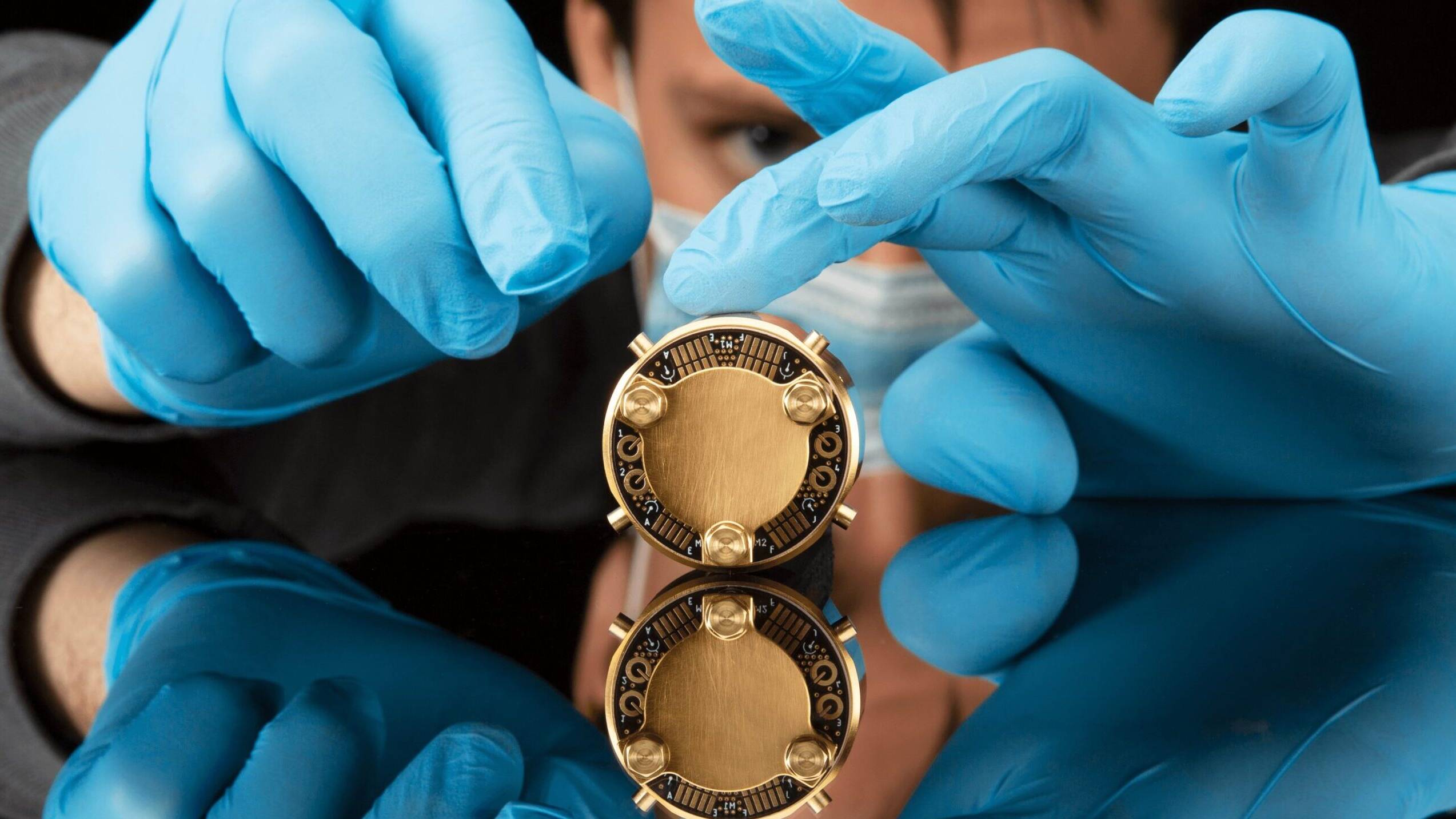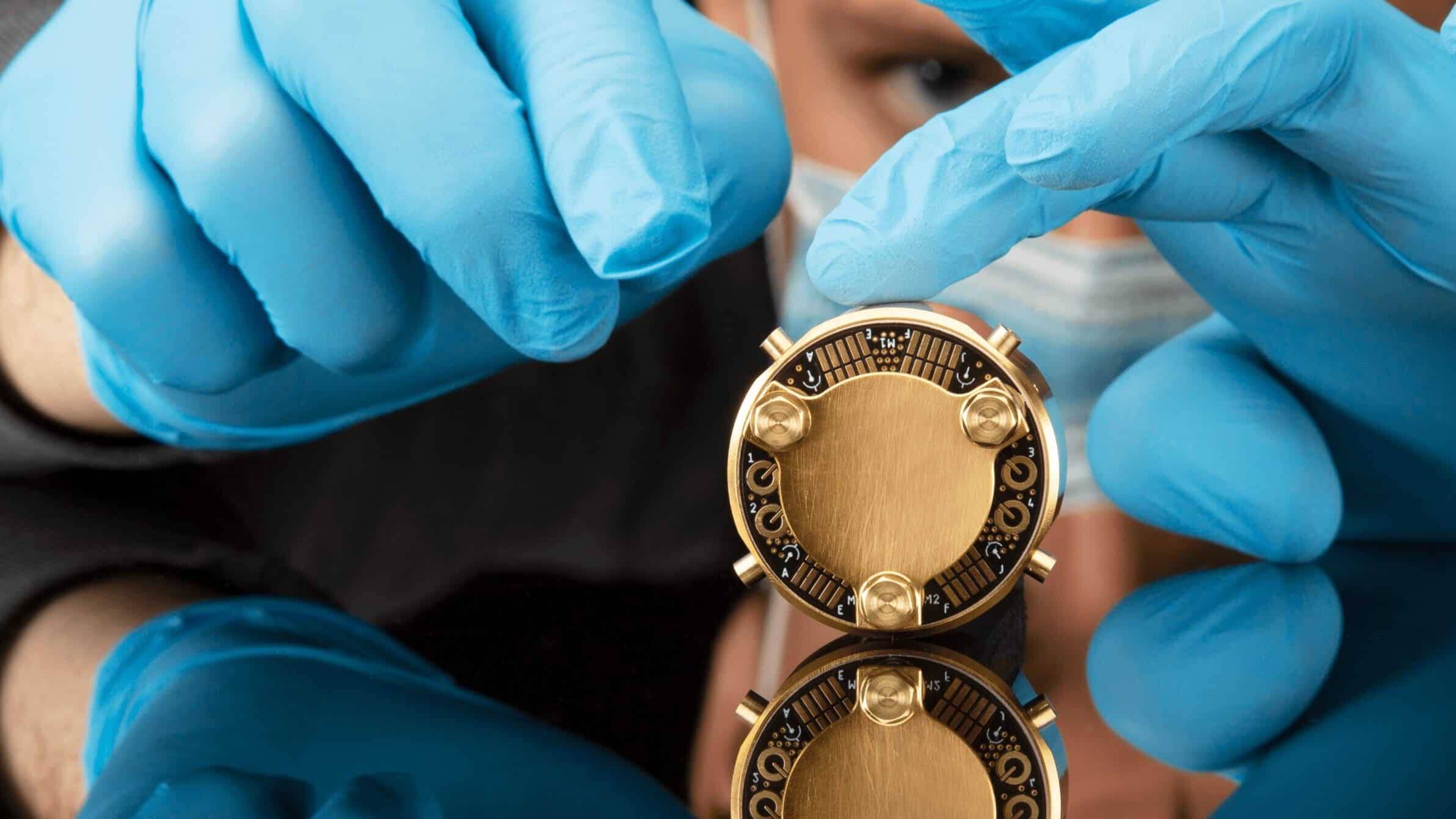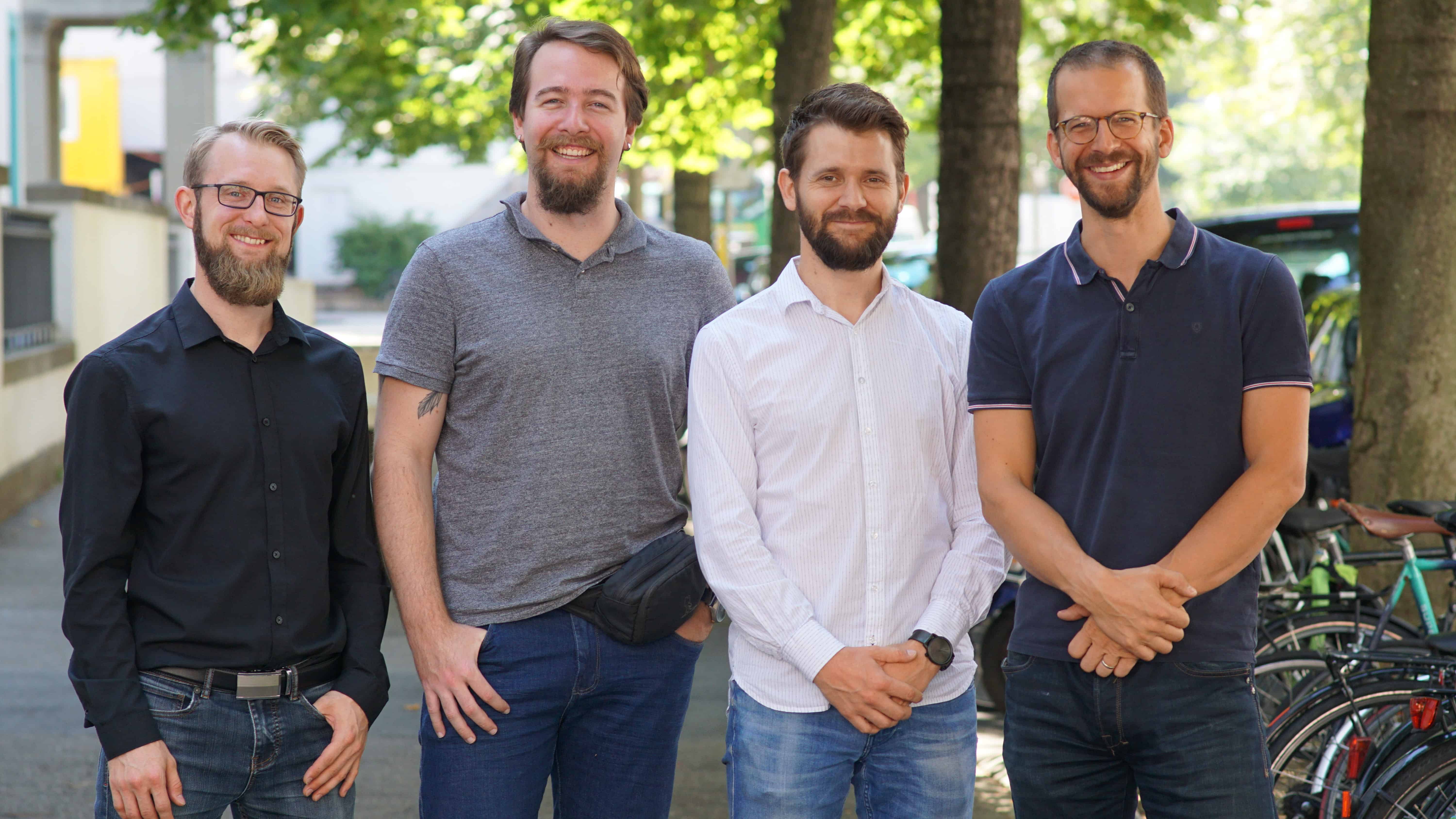Christophe Jurczak is Managing Partner of Quantonation in Paris, a venture capital firm he co-founded that is specialized on quantum technology. Christophe has worked in government and executive positions in energy, defense and in quantum computing, in Europe, and in the US. He has a masters degree in Engineering and Quantum Physics from Ecole Polytechnique and Ecole Normale Supérieure in Paris and a Ph.D. in Quantum Physics under the supervision of Prof. Alain Aspect on laser cooling of atoms.

Managing Partner, Quantonation
Christophe Jurczak is Managing Partner of Quantonation in Paris, a venture capital firm he co-founded that is specialized on quantum technology. Christophe has worked in government and executive positions in energy, defense and in quantum computing, in Europe, and in the US. He has a masters degree in Engineering and Quantum Physics from Ecole Polytechnique and Ecole Normale Supérieure in Paris and a Ph.D. in Quantum Physics under the supervision of Prof. Alain Aspect on laser cooling of atoms.
Quantum technology leverages the non-intuitive properties of quantum mechanics to develop applications in fields such as quantum computing, sensing, and communications. They are also called “the second quantum revolution”. The term “first quantum revolution” groups devices such as lasers, MRI scanners, and transistors that also rely on quantum mechanics. The European Commission has launched a 10-year EUR 1 billion project called “Quantum Technology Flagship” to support the emerging field.
Why is there a need for a venture capital fund specialized in quantum technology?
Founders in this space are scientists. Often, they struggle to explain what they do to investors who are not familiar with the technology. As an investor, if you don’t get it, you don’t invest. Because of my background, I can translate between these two worlds and bring these two worlds together.
What is your background?
I did my Ph.D. in physics with Prof. Alain Aspect, the father of the second quantum revolution. After working in defense, on the industrial applications of lasers and in the solar industry, I moved to Silicon Valley in 2012. At that time, quantum technology was slowly starting to move out of the lab towards first use cases. But in Europe, it was very difficult to find funding at that time.
How is the US different from Europe?
People are much more willing to take risks than in Europe in general. And the venture capital ecosystem is more specialized. There are quite a few venture capitalists in the Valley that invest in deep technology startups. It is not unusual to find physicists among the venture partners in such firms.
As Quantonation’s example shows, Europe is catching up in terms of specialization. But what inspired you personally to start a fund?
I got interested in helping companies to grow when I joined a quantum software company as head of business development. Later the idea of starting a specialized fund grew on me. I talked to Charles Beigbeder who was very interested in quantum startups as well. He has his own asset management firm, Audacia, and venture capital firm, Gravitation, and is very well connected in France financial world. Together we decided to establish Quantonation. We started with limited funding in the summer of 2018, to get some traction first. Since the fund’s inception, we have done 4 investments. Two more are in closing, one of which is Qnami.
How many startups in the quantum space are there?
We’ve been looking at more than 100 companies, real companies, not just someone with an idea. I have a good working relationship with the Creative Destruction Lab in Toronto an incubator from which around 10 quantum software companies graduate each year. So there are already numerous companies to choose from, but that’s not our only job. We want to help to build the quantum ecosystem in France and in Europe. We need to explain what quantum technology is about, and to promote this topic outside of a small expert network. The good thing is that generalist VCs have become more interested in the topic. Quantonation is happy to take a technical lead role in financing rounds, even if we don’t necessarily write the biggest ticket.
We want to help to build the quantum ecosystem in France and in Europe
What are your investment criteria?
With the 50 million we’re raising right now, we want to do around 15-20 investments. 30% of the fund is earmarked for seed investments, the rest for follow-on rounds. The geographical focus is Europe and Canada. We also strive to find a balance between applications that will emerge shortly and those that take more time.
That is an important point because some fields of quantum technology are still far away from commercialization, aren’t they?
In public discourse, there is much talk about quantum computing. The reason for that is that quantum computing promises a revolutionary growth in computing power with an enormous impact on society. We are, however, still 10 years or more away from universal quantum computing that can replace traditional high-performance computing. The focus in this space right now is on Noisy Intermediate-Scale Quantum (NISQ) computers. These are imperfect computers, but they can still be very useful for applications, for example in finance, where they help to improve the discovery of price trends. In the short term, some forms of computing based on optics and sophisticated physics could be game changers for applications of machine learning. They are within our investment thesis too.
Which quantum technologies are closer to reality than that?
In the medium term, say, 3 to 5 years, quantum cyber security will become viable. It will rapidly become important for communication networks and servers storing and processing data that need to be protected against adversaries with quantum technologies. But there is also a field that is so far advanced that it already has applications in the present, and that is quantum sensing. This is a technology that uses quantum mechanics as a means to achieve unheard-of precision and it already generates revenues. On top of that, quantum sensing is a domain where Europe is in a leading position worldwide, and where we see significant investments being done here. We are at the forefront of innovation in this field, and big firms like Bosch, Thales and Airbus show strong interest in it.
Qnami, a co-investment of Quantonation and investiere, is active in the field of quantum sensing. Why did you decide to invest in this Swiss startup?
The team is very strong. CEO Mathieu Munsch is a great scientist but he also has business acumen, a very good combination. Patrick Maletinsky is the foremost global expert in this field and a nice guy as well. A well-balanced and cohesive team is important from an investor’s perspective, as well as the vision to build something really massive. And we think that Qnami will scale big because they want to become the go-to company manufacturing quantum sensors.
At the moment, Qnami is already selling sensor to clients, but they come mostly from academia. Don’t you fear that the company will get stuck selling to a small academic market?
This question is very telling. In Europe, venture capitalists focus a lot on the short term. In the US, they ask about the big long-term vision. As an investor, we’ll certainly remind our startups about the vision and make sure it doesn’t get lost. I’m quite convinced that in Qnami’s case, the potential is there and that it can be realized.
What exactly is quantum technology?
An explanation by Prof. Patrick Maletinsky from the University of Basel.
Read the interview with him here.
Quantum technologies harness properties of objects described by quantum mechanics (such as electrons, atoms, molecules, etc.) for technologically relevant applications. To understand what differentiates such quantum technologies from their classical counterparts, one needs a grasp of what “quantum” really means. There are three key features that differentiate the quantum world from the classical world – “quantum superposition”, “quantum measurement” and “quantum entanglement” (below, I give a short, superficial description of the three). A quantum technology exploits at least one of these three features to realize a practical advantage over classical technology.
One specific example is how quantum superpositions can be used for sensing: An object in a quantum superposition state is a fragile thing (which is why we don’t normally experience such superpositions in our everyday life). The main reason for this fragility is that our environment is constantly fluctuating and these fluctuations destroy quantum superpositions. Quantum sensors can harness this vulnerability for precise measurements. The quantum sensors that Qnami employs, for example, consist of single electrons that can be controllably prepared in quantum superposition states and the stability of these states can be measured very precisely (even under ambient conditions). Bringing these quantum sensors in contact with objects that exhibit magnetic fluctuations (a magnetic nanoparticle, a hard-drive, a bio-molecule,…), then opens possibilities for measuring and imaging these objects with high precision and nanoscale resolution. At Qnami and in my research group, we have demonstrated several cases already, where this approach brings clear performance advantages over existing, “classical” technologies.
Here are the quick descriptions of the three “quantum features” I mentioned above:
- “Quantum superposition”: Quantum objects can occupy several “states” at the same time. For example, a quantum-mechanical compass could point north and south at the same time. The famous Schrödinger cat can be both dead and alive at the same time, etc.
- “Quantum measurement”: Contrary to the classical world, a measurement in quantum mechanics influences the object it measures. This results in fundamentally different limits of how precisely a quantum object can be measured, compared to what classical physics predicts.
- “Quantum entanglement”: Quantum mechanics allows multiple quantum objects (say, two electrons, ten atoms, …) to be in “entangled” states. A key property of such entangled states are correlations between the entangled objects. We know correlations from classical physics (A trivial example: Say you own a pair of gloves of which you only find the left one – then you know the right one is missing), but the correlations in a quantum entangled state go beyond what classical physics can describe. Such entangled states are at the basis of quantum computers and can also be useful in sensing.
Written by
WITH US, YOU CANCO-INVEST IN DEEP TECH STARTUPS

Verve's investor network
With annual investments of EUR 60-70 mio, we belong to the top 10% most active startup investors in Europe. We therefore get you into competitive financing rounds alongside other world-class venture capital funds.
We empower you to build your individual portfolio.
More News
24.11.2021
Growth capital for quantum cooling startup kiutra
The financing round is led by the new shareholders TRUMPF Venture and the Swiss deep-tech VC Verve Ventures. Together with the existing investors High-Tech Gründerfonds (HTGF), APEX Ventures and the Initiative for Industrial Innovators, the syndicate is investing a mid-seven-digit amount in the spin-off from the Technical University of Munich.
02.03.2021
An introduction to quantum sensors and the investment opportunities
in this space
Quantum computing and its supremacy over the classical computer capture the imagination of people all over the world. Less known, but no less fascinating is the practical application of quantum phenomena to build sensors that can measure what is otherwise impossible. Scanning a single cell, looking around a corner, hearing a mouse eat in a grain silo, all of this becomes possible thanks to quantum sensors.
15.11.2019
Qnami (Quantum Sensors): CHF 2.6 Seed round
Qnami has raised CHF 2.6 million from Quantonation, investiere, ZKB Starup Finance and High-Tech Gründerfonds. investiere contributed CHF 1 million to this round.
Startups,Innovation andVenture Capital
Sign up to receive our weekly newsletter and learn about investing in technologies that are changing the world.




